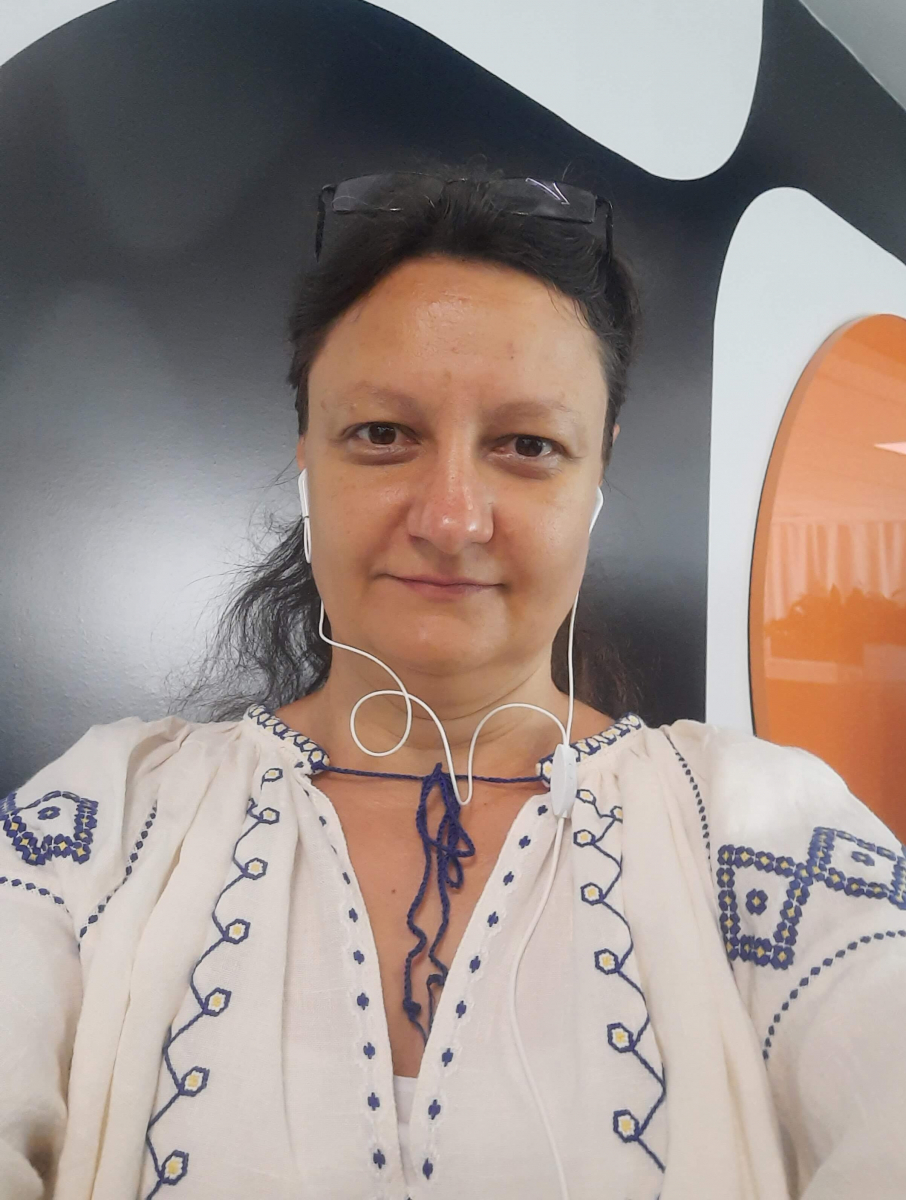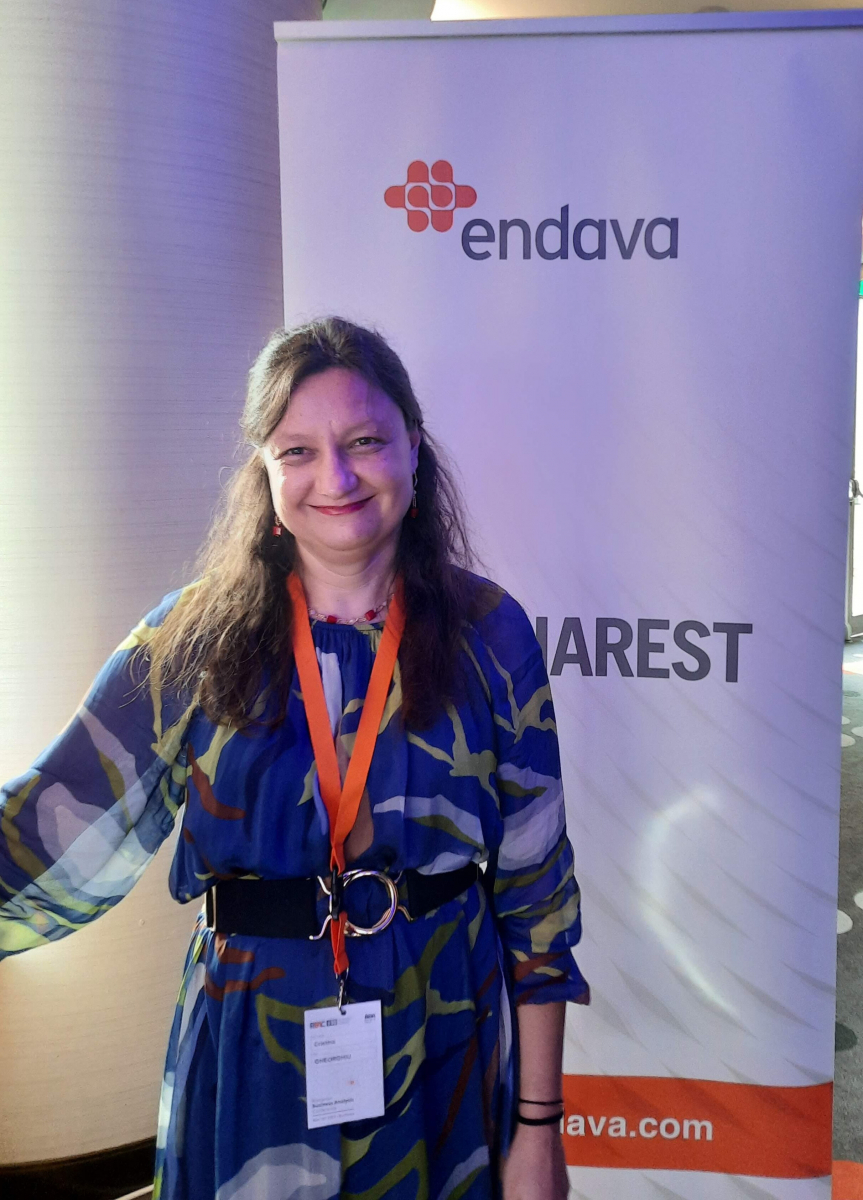Cristina Gheorghiu
Cristina Gheorghiu
14.03.2024
1. Introduce yourself
I am currently a Delivery Manager in Endava. I’ve been doing Business Analysis for almost 20 years in one form or another. Even if the current position does not sound like it, I still contribute to early Business Analysis steps, including Strategy Analysis, BA Planning, Requirements Lifecycle, all these handled with a strong agile perspective.
I live in Bucharest, Romania and I enjoy visiting the world. I’ve got two children, 20 and 17 years old from whom I continue to learn a lot. I am passionate about learning the science behind things and behaviours and how we can create new ways of being.
I like Romanian food and traditions. Every time I visit Bulgaria I am surprised to see how many subtle connections we have between our cultures. Even though our languages are so different, the food, the dances, the traditional costumes share similar roots.
2. How did you become a business analyst?
At the university in Bucharest, I learned about SSADM, RUP and UML. I had teachers who taught me not only computer-science algorithms, but also logical algorithms, how to think in steps before coding.
I think this was my first encounter with Business Analysis. However, 20+ years ago there was no difference between an analyst and a programmer, at least in Romania.
So, I started my career as a software developer in the year 2000, as that was the only way I knew. Five years later, having “withstood” two revolutions in my life, a revolution in programming paradigms (including introduction of XML) and having a one-year maternity leave, I came back to work and the world was a bit different. There was a lot to clarify before coding, many clients with many requirements to accommodate for the single product we had…. I could spend time just analysing and putting things in order so they can be programmed.
This is how I became Application Analyst and it was the start of a full-time job as an analyst.
3. Based on your experience so far, what advice would you give to someone entering the field of business analysis?
I would bring forward three points:
- Whenever you start a BA initiative, clarify for yourself why you are there, as a business analyst, what you will need to have achieved by the end of it.
- If you don’t have a mentor around, someone you can trust to show you the way when times are hard, take a formal BA training. This will give you the confidence that you’re doing the right thing.
- If you failed, check what you could have done different and start all over again. We all fail sometimes, you are not alone.
4. What qualities should a good business analyst possess?
There are many, but from my point of view, I would highlight these three:
- Structured, analytical thinking - You need to have a structure for what you do.
- Self control – as a BA, you need to be the least stressed person in the room
- Trustworthy – stakeholders usually give you their problems to solve. And one can only share their problems to someone they can trust.
5. If you could describe the perfect stakeholder in 3 words, how would you describe them?
Clear-minded, team-player, goal-oriented
6. Is there a skill that you successfully apply in your professional practice as well as in your personal life?
Cool-down storms ![]()
When the situation in a meeting tends to escalate to pressure or downwards to a negative vibe, I intervene and restore a collaborative, positive attitude. Some people have this natively, I got it the hard way, both at work and at home
7. Recommend a podcast, book, or blog that you follow.
I recommend this book: The Creative Habbit by Twyla Tharp. Its beginning is incredibly powerful. And my invitation for everyone who reads it is to see if you can take anything from this book and apply or match it to your work.
For example, whenever I'm stuck on a problem, I retreat to my "cocoon position" to brainstorm. It involves sitting on a chair, elbows on knees, hands covering my ears, facing down to block distractions and try to articulate my concerns and goals. Almost like this famous Romanian sculpture:"

8. Business analyst or Product Owner or Product Manager?
All three. They each have their duties. Indeed, for smaller initiatives/products, not all three positions are needed as separate persons. That is why it is good for a Product Owner and Product Manager to master Business Analysis skills and techniques.
9. What is your prediction about the BA profession in say 5 years?
I think we will focus even more on defining the problem and a bit less on solutioning, since there will be more and more specialized products and AI-driven solutions. I also think learning business analysis will need an adapted approach. Maybe not completely different in five years from now, but we need to grow our BA development in trend with the general growth of the industries we work in.



